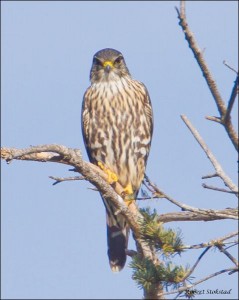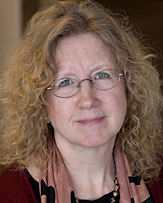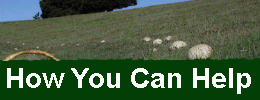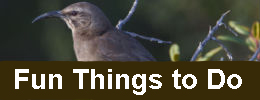 The movement that began with Occupy Wall Street has been criticized for lack of clarity in its agenda, but despite mainstream media coverage suggesting it is unfocused, that agenda has seemed pretty clear to me and many of those I know who support it: Reduce corporate influence on politicians and government policies, address glaring income inequality, attend to the environmental catastrophe of climate change, and re-engage people as citizens, rather than fatuous, self-absorbed “consumers of stuff.” All that may at first glance appear remote from the struggle to protect Knowland Park, but there is an underlying vision that informs both: the possibility of transforming who we are and how our institutions relate to the social and natural worlds. That vision, I think, includes a shift away from regarding everything around us as a resource for making money– toward considering the worth of nature in its own right.
The movement that began with Occupy Wall Street has been criticized for lack of clarity in its agenda, but despite mainstream media coverage suggesting it is unfocused, that agenda has seemed pretty clear to me and many of those I know who support it: Reduce corporate influence on politicians and government policies, address glaring income inequality, attend to the environmental catastrophe of climate change, and re-engage people as citizens, rather than fatuous, self-absorbed “consumers of stuff.” All that may at first glance appear remote from the struggle to protect Knowland Park, but there is an underlying vision that informs both: the possibility of transforming who we are and how our institutions relate to the social and natural worlds. That vision, I think, includes a shift away from regarding everything around us as a resource for making money– toward considering the worth of nature in its own right.
Corporate influence does not just happen at the national level. The corporate executives who serve on the Zoo’s board are enormously influential and well-connected locally and at the state level. They “know who to know” to make things happen, and the ramrodding through the city approval process of the Zoo’s development project shows how effectively they use those connections. It’s no coincidence that the public relations firm retained by the Zoo to counter community groups opposed to the project was run by former state representative Don Perata’s daughter! These are people accustomed to getting their own way, and Zoo management has come to feel entitled to make use of Knowland Park as though it were their private property. But it’s not. And so it’s time to make a stand to protect it.
The Zoo has tried to wrap itself in the mantle of benefactor to the poor, claiming that its “taking” of precious public parkland for development will be economically beneficial to the community, since it will provide construction jobs. But those will be temporary jobs, not permanent ones. And rather than being able to access the very best parts of this magnificent place for free (as they now can) once the fences go up, Oakland’s citizens will have to pay to go there. Further, they are already paying: a large percentage of the costs of this ill-planned development would come from public funds—funds that were voted upon without making clear that they would be used to fence off and develop public parkland for use by a private entity. It’s time to take a stand against this type of “soft privatization” of public lands.
Climate change is everyone’s responsibility. Yet the Zoo is planning a massive development with no alternative transportation planning, relying entirely on private automobiles. We can’t rely on the federal government to reduce our carbon emissions: we must all be doing our part, and no development should be planned without non-car-dependent transport options being included. It’s time to take a stand against the delusion that climate change will be “fixed” by someone else “out there” and insist on better planning—even if it costs. The long term costs of not doing so are unimaginably greater.
Habitat loss is the single biggest threat to the survival of species, but the Zoo’s planned faux-“conservation” development will result in permanent loss of habitat already occupied by multiple native species. If we are truly to change the way we relate to the natural world, we can’t just keep building “one more” development in the name of this or that good cause. Authentic conservation organizations must find smarter ways to develop, rather than justifying continued expansion into remaining wildlife habitat. Making a stand for wildlife who cannot speak for themselves is part of changing how we relate to the world as human beings.
At what point do we take a stand for wildlife and plant communities as valuable in their own right, on their own terms, not as something to be “taken” and destroyed through thoughtless continued development aimed primarily at making money? We are encouraged to “think globally, act locally” in multiple ways. It’s time to point out that Knowland Park is already occupied by creatures who ‘owned’ it long before we came along.
The “Occupiers” of Knowland Park need our support to merely survive.
If we do not stand up for these dwindling local wildlands and the creatures who occupy them, no one will. And future generations may wonder why we stood back and watched the beginning of a new round of extinction–pushed by corporate executives in the guise of an outdated version of “conservation.”
Ruth Malone is a resident of Oakland since 1983, a resident of Oakland since 1983, a founding member and co-chair of Friends of Knowland Park and a longtime Oakland neighborhood activist. Since 2007, she has been working to educate and organize environmentalists, park users, and community members to protect the park. In her day job, she is a professor of nursing and health policy at University of California, San Francisco, where she helps students study the links between health and political, social and natural environments, and conducts research on the tobacco industry and its efforts to thwart public health efforts worldwide.
Ruth Malone’s Reflections Blog offers a combination of reflective essays and updates from the Protect Knowland Park Campaign, linking the fight to protect Knowland Park to broader environmental and ethical issues.

 Follow
Follow








Comments are closed.